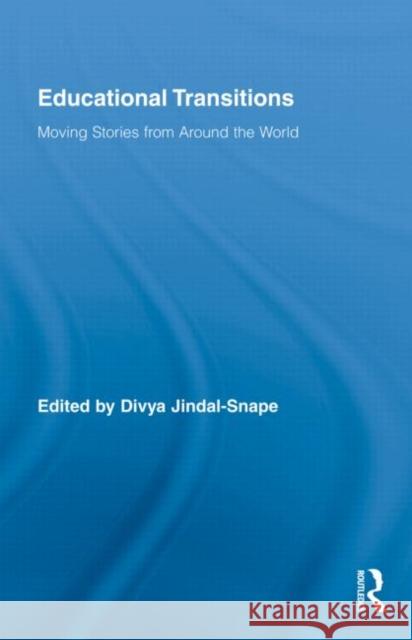Educational Transitions: Moving Stories from Around the World » książka
Educational Transitions: Moving Stories from Around the World
ISBN-13: 9780415805919 / Angielski / Twarda / 2010 / 262 str.
Educational Transitions: Moving Stories from Around the World
ISBN-13: 9780415805919 / Angielski / Twarda / 2010 / 262 str.
(netto: 746,32 VAT: 5%)
Najniższa cena z 30 dni: 755,61
ok. 22 dni roboczych.
Darmowa dostawa!
Despite variations of educational systems, when transitions in education occur, the pedagogical challenges that teachers and pupils undergo are quite similar across the globe. Transitions are phases in which pupils, peer groups and teachers have to renegotiate and rebuild their learning environment in the educational context. These various transitions in students' learning paths significantly impact on schools' everyday life. This volume explores transitions at all stages of educational progression, i.e., nursery to primary, primary to secondary, and secondary to post-school. It also examines these transitions across a variety of countries and types of schools. Educational Transitions provides up-to-date literature, research and theoretical constructs that help readers understand the issues, social-emotional-psychological dimensions, and evidence-based possible interventions to support an individual through these educational transitions. It also allows scholars, teachers, and students to critically analyse how lessons learned from one country can be adapted for other countries' educational systems.
Despite variations of educational systems, when transitions in education occur, the pedagogical challenges that teachers and pupils undergo are quite similar across the globe. Transitions are phases in where pupils, peer groups and teachers have to renegotiate and rebuild their learning environment in the educational context. These various transitions in students' learning path significantly impact on schools' everyday life. This volume explores transitions at all stages of educational progression, i.e., nursery to primary, primary to secondary, and secondary to post-school. It also examines these transitions across a variety of countries and types of schools. It provides up-to-date literature, research and theoretical constructs that help readers understand the issues, social-emotional-psychological dimensions, and evidence-based possible interventions to support an individual through these educational transitions. It also allows scholars, teachers, and students to critically analyse how lessons learnt from one country can be adapted for other countries' educational systems.











